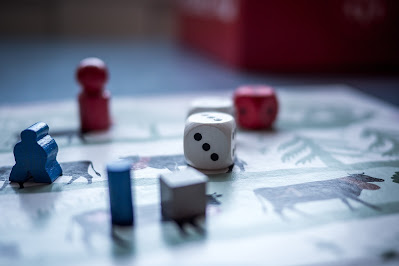Is Playing Learning?
Think about something you enjoy. It's likely that you're also good at it, and that you found it through some sort of play. This may have happened when you were young, or just this year. Play keeps our attention and fuels learning. Coders take on challenges in tournaments. Surgeons play video games for manual dexterity. Chefs create dishes with only a few ingredients.
As Dr. Sam Wang and Dr. Sandra Aamodt describe in their book Welcome to Your Child’s Brain: How the Mind Grows from Conception to College (2011), play activates the brain’s reward circuitry, specifically norepinephrine, which can facilitate attention and action. They explain that "Norepinephrine improves brain plasticity, such that change becomes possible when this chemical is present in elevated amounts. The conditions of play—the generation of signals that enhance learning without an accompanying stress response—allow the brain to explore possibilities and to learn from them.”
Have you thought about incorporating play into your courses, but were concerned that it might not be serious enough for higher education? Well, play researchers would disagree. If our focus is learning and retention, play may be a great answer. To incorporate play into your course start with your competencies and let your mind imagine. Is it important to memorize certain fundamentals? If so, maybe a Jeopardy game. Is problem solving integral in your discipline? If so, maybe some case studies that can be role played or turned into competitions, videos, or photo collages. Is developing creativity important? If so, maybe set aside a time for free-form expression in your dance class, or 'crazy ideas' for a start-up business in your small-business class. The options are endless.
I'm pretty good at world geography, and I attribute that to my sixth grade teacher, Mr. Moricey. Mr. Moricey had a world map (without labels) on the entire back wall of the classroom. Each day he would randomly pick one or two students, and as he pointed to places on the map you would say the country name. You got to go on for as long as you got things right. He would commend you for your knowledge, or playfully prod you to pay more attention to other students in order to keep the floor longer next time and beat the class record. You didn't get points for this exercise, but we did it all year so the motivation was there to get better. It was fun, and everyone learned world geography.
"Play is the only way the highest intelligence of humankind can unfold."
- Joseph Chilton Pearce, human/child development author

I find that using game-based learning activities also offers my students an opportunity to develop problem-solving and communication skills.
ReplyDeleteHaving a toddler at home has reshaped my understanding of learning, and pushed "play" right to the top of learning experiences. When my girl is sad that I'm leaving for work, I tell her that she is going to work, too--but that her work is to play and learn.
ReplyDeleteJohn Cleese speaks extensively about using play to get into the creative mindset. In my beginning courses, I make time for students to play whenever introducing new materials. I also encourage them to document the times when they find their minds are actively being creative without effort on their part. After a while one can speed themselves along into the creative mode by putting themselves into situations that help foster their personal creativity.
ReplyDelete